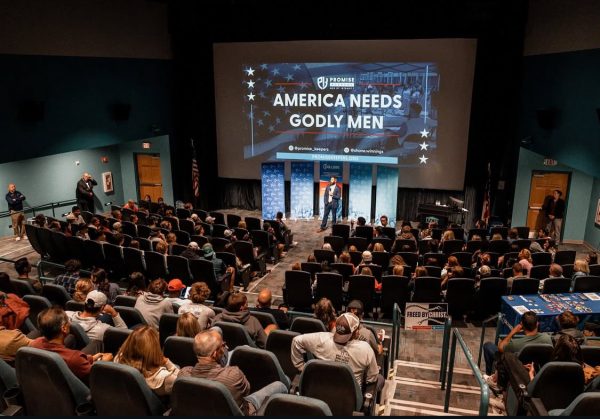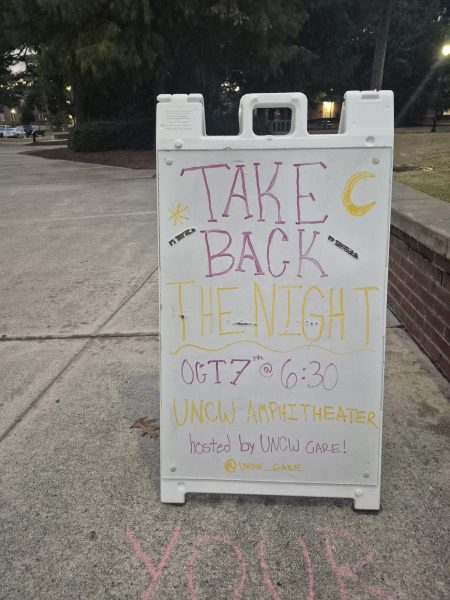SGA to start a new program geared towards diversity and cultural competency
A new curriculum program is being planned for UNC Wilmington (UNCW) that has a unique twist: it is being spearheaded by a student.
Thomas Wilson, the academic affairs committee chair of the Student Government Association (SGA), is currently working towards developing a cultural competency program for UNCW.
The inspiration for this idea was sparked by multiple anonymous suggestions to Wilson and Brianna Ramirez, the director of diversity and inclusion for SGA. The goal of the program would be to create a more diverse curriculum and allow all students to develop cultural competency.
“This could be an eye-opener for freshmen and introduce them to other subjects,” said Wilson.
Ramirez has been working to compile different classes that would incorporate well into the program.
“This is a really great way to first implement [cultural competency] into academics because it’s already there, we just don’t have it all in one place,” said Ramirez.
While there is still much work to be done before the program is available to students, Wilson and Ramirez are not the only ones who are excited. The program will most likely be interdisciplinary, and there are many departments that have shown interest in having their classes be a part of the program.
So far, every department that Wilson has reached out to has replied with support. This includes the School of Social Work, the School of Health and Applied Human Sciences, the Watson College of Education, the communication studies department, the anthropology department, the sociology department, the psychology department and the honors college. All of these departments have agreed that the program could be beneficial for UNCW.
Mike Maume, the professor and chair of the department of sociology and criminology, also has high hopes for the program.
“Our department supports the work of Thomas Wilson, the SGA, and its partners in developing an academic program focused on cross-cultural competency. Within both sociology and criminology, scholarship on human societies is better informed by global and cross-cultural perspectives, and it is a goal in our curricula to acknowledge diversity and understand how it manifests itself in various ways, particularly in American society,” wrote Maume.
“I look forward to working with Mr. Wilson and others to make this happen. Although all UNCW students are required to take diversity-related courses, the development of this program in particular gives UNCW an opportunity to expand and update course offerings in this domain at a time when cultural competency is vitally needed.”
Ramirez helped advocate for the program to Donyell Roseboro, a professor with the department of instructional technology, foundations and secondary education at Watson college and interim chief diversity officer.
“The idea of a cultural competency program is intriguing in that it could give us an opportunity to educate towards cultural competency across programs,” said Roseboro. “To educate in this way would certainly help us grapple with substantive content about diversity, equity, and inclusion. The challenge will be in how faculty staff, and students design a program that helps us in the present and future.”
This program is unique in the eyes of Paul Townend, the associate vice chancellor and dean of undergraduate studies. He is enthusiastic about the fact that it is being brought about by the work of a student and is glad to see a student pushing to collaborate with faculty to develop something that they believe is needed.
Usually, new programs are the project of a member of the faculty, and to have a program be initiated by a student is a rare thing.
“It’s really good to see curricular ideas coming from students, because that doesn’t happen very often… [it] certainly inspires me as an administrator,” said Townend. “Thomas had been really good and proactive about reaching out. My thought was when we hit the beginning of the new year, we would start to move this forward again, and the spring really is the time when the faculty is thinking about creating [new curriculums].”
Townend believes that a program like this will give students the opportunity to look at things through a different lens while working with students and faculty in disciplines that are new to them.
“I think you want something that excites students to think in new ways. This is exactly the kind of minor I like to see because… this [gives students the chance] to minor in a way of thinking about problems,” said Townend.
There are other programs similar to the one Wilson has in mind at other universities such as East Carolina University and San Diego State University. Here at UNCW, the program is still in its planning stage, but Wilson is hopeful it will be made a reality in 2022. The form it will take is still to be decided as it is unclear whether it will be a certificate, a minor or, as Wilson hopes, possibly even a major at some point.
In his view, this program would give any student the ability to have access to culture regardless of their own identity and the identity of their social group.
“This program would be very marketable to employers, and marketable for the university,” said Wilson.








